Mahatma Gandhi 150th Birth Anniversary

Technical Data
| Date of Issue | October 2, 2018 |
|---|---|
| Denomination | Rs. 150 |
| Quantity | 200,000 |
| Perforation | 14 x 14 |
| Printer | India Security Press, Nashik |
| Printing Process | Wet Offset |
| Watermark | No Watermark |
| Colors | Multicolor |
| Credit (Designed By) | Dr. Amarpreet Duggal Sh. Sankha Samanta Smt. Alka Sharma |
| Catalog Codes |
Michel IN BL199 Stamp Number IN 3066a Yvert et Tellier IN BF186 Stanley Gibbons IN MS3545 |
| Themes | Anniversaries and Jubilees | Famous people | Independency Activists | Lawyers-Advocates | Optical Instruments | Revolutionaries | Round Stamps | Teachers |
Stamps in this Miniature Sheet
Mahatma Gandhi – The Apostle of Truth and Non-Violence
If there was ever a man who single-handedly transformed the destiny of a nation and its people—from a subjugated state under colonial rule to a self-confident populace demanding freedom—it was undoubtedly Mohandas Karamchand Gandhi, revered as the Father of the Nation.
Born on 2nd October 1869 in Porbandar, Gujarat, into a Modh Bania family, young Monia, as he was lovingly called, displayed traits of sincerity and truthfulness from an early age. His father, Karamchand Gandhi, was a respected political figure, and his mother, Putlibai, was deeply religious and well-informed about affairs of the state.
Early Encounters with Injustice
Gandhiji’s first experience with racial arrogance came when he was forcibly evicted from the office of Sir Charles Ollivant, a British Political Agent in Kathiawar. Though humiliated, Gandhi resolved never again to place himself in a position of weakness. This inner determination later shaped his lifelong resistance to oppression through moral strength rather than retaliation.
His defining confrontation with racial discrimination occurred in South Africa, where he was ordered to remove his turban in court and later thrown out of a train at Pietermaritzburg Station. These incidents deeply influenced his philosophy and stirred in him a quest for truth and justice.
Birth of Satyagraha
Inspired by the teachings of Leo Tolstoy, Gandhi renounced violence and hatred, believing that “Violence is the weapon of the weak; non-violence that of the strong.”
From these convictions emerged Satyagraha—the doctrine of truth and non-violent resistance. Rooted in moral power and self-discipline, Satyagraha became the cornerstone of India’s freedom movement and a model for civil rights struggles across the world.
The Power of Truth and Selflessness
Gandhiji’s devotion to Satya (truth) stemmed from his boyhood fascination with the story of King Harishchandra, who sacrificed everything for truth. This early influence shaped his unshakable honesty and integrity. Gandhi’s transparency extended to his public life—his campaigns, decisions, and even personal experiments were openly discussed in his newspapers. He declared, “Truth is God.”
His ability to forgive was as profound as his commitment to truth. He bore no malice toward his opponents, often working alongside those who once opposed him. He believed, “Man finds himself by losing his self-ego.”
Life of Service and Cleanliness
Service to humanity was the guiding principle of Gandhi’s life. From nursing his ailing father in childhood to tending leprosy patients and improving sanitation in villages, he lived by the belief that “A life spent in service is the only fruitful life.”
Gandhiji also emphasized the importance of cleanliness, not only of the body but also of the mind and soul. He said, “Where there is both inner and outer cleanliness, it approaches godliness.” His vision of a clean, self-reliant India continues to inspire national cleanliness and public health movements even today.
Legacy
Mahatma Gandhi’s life remains a timeless testament to the power of truth, non-violence, and selfless service. His principles continue to inspire generations across the world, reinforcing that moral courage and compassion can indeed move nations.

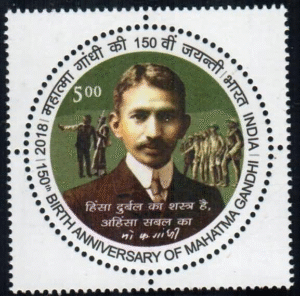
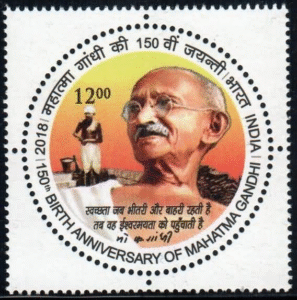
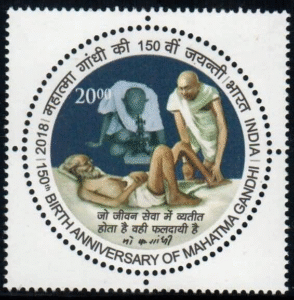
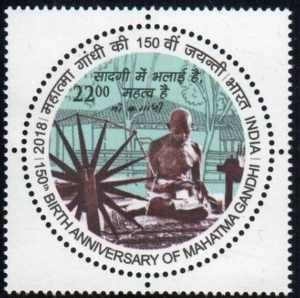
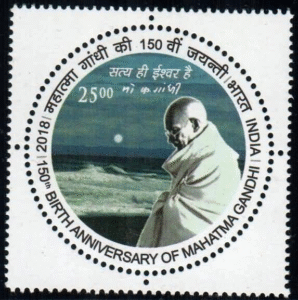
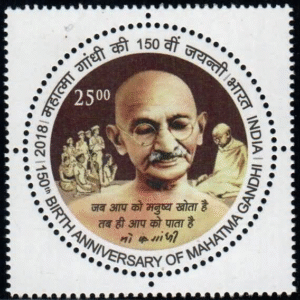

Leave a Comment
You must be logged in to post a comment.